Blog
Can Acupuncture Reduce Stress?

In times like this, when widespread worry is one of the only things tying us together, people are seeking ways to reduce stress and begin to think clearly again. The effects of long-term stress on a person can be incredibly harmful not only to the mind, but to the body. People with higher anxiety are actually at higher risk for cancer. Their high stress levels weaken their immune system. Further, high stress levels can cause fatigue, muscle pain, insomnia, and many other symptoms that can damage the body.
Stress is often triggered by the human brain’s fight-or-flight response to everyday occurrences such as an overload of emails, running late for work, or in the case of recent events, a pandemic. Stated more simply, stress can be any thought or feeling that causes your brain to feel threatened. This is why, to our brain, an email backlog can be just as stressful as an animal attack. However, many people are reluctant to seek out doctors. They fear they’ll be prescribed pills and medications they could avoid with other treatments.
Studies of Acupuncture’s Effects on Stress and Anxiety
In several studies of people suffering from anxiety, acupuncture reduced stress where other treatments were ineffective. It’s been proven that acupuncture helps to stimulate the release of oxytocin, a hormone that’s been tested as an anti-anxiety drug, and that it reverses and addresses stress effects such as high blood pressure and insomnia. By targeting the fight-or-flight response, acupuncture can help you become much more rested and relaxed and signal your brain that it is safe to settle down. In this state, your body can begin to heal the effects of stress and prepare for a comfortable sleep.
As far back as 2003, a World Health Organization study on acupuncture reported that acupuncture stimulates the hypothalamus and pituitary gland, while also altering neurotransmitters that have positive effects on brain chemistry. The study found that acupuncture shuts down the part of the brain responsible for stress and pain. This helps the limbic system physically alter the body’s experience of stress. Patients even claim that acupuncture provides faster-acting relief for their symptoms of anxiety, depression, and stress than the medications and other therapies recommended to them.
Acupuncture has even been found to have positive anti-depression effects. In a University of York study of 755 people suffering from moderate to severe depression, acupuncture had substantial positive impacts on depression. As such, acupuncture has become a highly sought out, drug-free treatment for stress, anxiety, and depression. Many anti-depressants and anti-anxiety drugs have adverse side effects that acupuncture doesn’t have, making it a safer and much more comfortable method of relief for the patient.
The Traditions and Science Behind Acupuncture
According to the Chinese definition, acupuncture brings the body back into balance by unblocking the “qi” that flows through certain internal pathways. Instead of seeing the mind and body as suffering from two different ailments, acupuncture doesn’t disconnect the two. As such, if you were to tell your acupuncturist that you’re suffering from high stress levels and experiencing hot flashes, he or she will see the two conditions as interrelated and connected. In the Chinese belief, the mental and physical ailments and aspects of a person are woven tightly together.
This explanation is a bit more abstract than the Western medical description, which says acupuncture eases anxiety by helping to regulate the nervous system. To physicians who understand it, acupuncture brings the branches of the autonomic nervous system – the “qi” in Chinese medicine – back into balance with each other. Acupuncture, at its roots, is about restoring balance in the body to ease stress and anxiety.
Some claim that acupuncture merely provides a placebo effect, but science backs up the treatment’s positive impact on the body. Brain scans show that the balancing effects of acupuncture on the limbic system aren’t just a placebo. Additionally, acupuncture is so risk-free. There’s little reason for people to be concerned about it, since its effects on the body and mind are overwhelmingly positive. Acupuncture treatment can help boost energy, relax the patient, reduce anxiety, stress, and depression, and overwhelmingly help your body heal.
Conclusion
The science and tradition behind acupuncture’s positive effects are clear and should be enough to quell any doubts about its utility. Today, for many people, stress, anxiety, and depression are being exacerbated by the global situation. Finding a way to ease stress is essential to the well-being and healing of minds and bodies. Acupuncture has a long history of doing this to help people cope with the worst stressors the world can throw at them. Why not give it a try?









